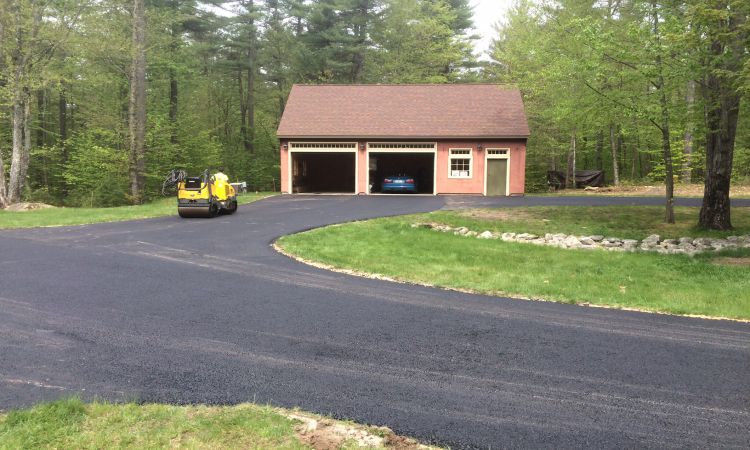 Asphalt driveways are popular with homeowners and commercial property owners due to their durability and sleek appearance. However, like any other surface, they require proper maintenance to ensure they last for years without deteriorating.
Asphalt driveways are popular with homeowners and commercial property owners due to their durability and sleek appearance. However, like any other surface, they require proper maintenance to ensure they last for years without deteriorating.
Learn the essential aspects of asphalt maintenance, offering valuable insights and tips to keep your driveway clean and your pavement in top-notch condition.
Table of Contents
Understanding asphalt driveways
Before diving into maintenance, it’s crucial to comprehend what asphalt pavement is and how it lasts once installed. This foundational knowledge will help you appreciate the significance of proper maintenance.
Asphalt driveways consist of stone, sand, and asphalt sealer. They are carefully installed by contractors like asphalt companies in Michigan, typically in a curing period that lasts a few days.
The installation process
A new asphalt driveway starts with a meticulous installation process. It involves excavation, grading, and compaction of the driveway area.
Proper drainage matters
Good sub-drainage and water drainage systems are essential for preventing standing water in your asphalt paving, which can quickly form cracks and cause further deterioration.
Essential maintenance tasks
Visual inspection
Performing visual inspections every few months can help you spot hairline cracks, minor damage, and surface imperfections. Addressing these issues promptly can prevent further deterioration.
Filling cracks
When you spot cracks, it’s crucial to address them promptly and identify the materials needed for repair.
Cracks come in various forms, including hairline fractures and larger, more substantial cracks. Depending on the severity, you can use asphalt patching compounds or sealants to fill cracks and prevent further damage.
Seal coating
Seal coating is a protective measure that can drastically weaken the residual effect of gasoline or oil spills.
Seal coating involves applying a thin layer of protective material to the surface of your driveway. This barrier prevents gasoline, oil spills, and other chemicals from penetrating the asphalt, protecting it from structural damage.
Preventing potholes
Potholes can be a nightmare to deal with. To prevent potholes, use de-icing materials like potassium chloride in the winter.
These substances can minimize the expansion and contraction of water during freeze-thaw cycles, reducing the likelihood of pothole formation.
Common issues with asphalt
Cracks in your asphalt can result from freeze-thaw cycles, heavy rock salt usage, or the residual effect of oil spills.
Potholes often occur when water intrusion weakens the underlying structure. Surface depressions can be unsightly and are typically left untreated.
The deterioration process begins with minor damage, such as hairline fractures and small cracks. These issues can escalate if left unaddressed, leading to larger cracks and potholes.
Regular cleaning and maintenance can help prevent further deterioration.
Tips for a long-lasting asphalt driveway
Maintenance for new driveways
If you’ve recently installed a new driveway, avoid heavy usage and sharp turns, which can lead to surface damage.
Regular cleaning
Regular cleaning involves removing debris, weeds, leaves, and other absorbent materials that can trap moisture and lead to damage.
A simple sweep or hose-down every few weeks can go a long way toward preserving your driveway’s surface.
Last words
Asphalt driveway maintenance is vital to extending the lifespan of your asphalt driveway. Following the guidelines outlined in this guide, you can prevent common issues, maintain your asphalt driveway’s visual appearance, and ensure its structural integrity. Remember, a well-maintained driveway not only adds to the curb appeal of your property but also saves you from costly repairs down the road.






